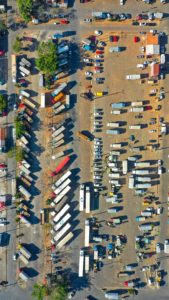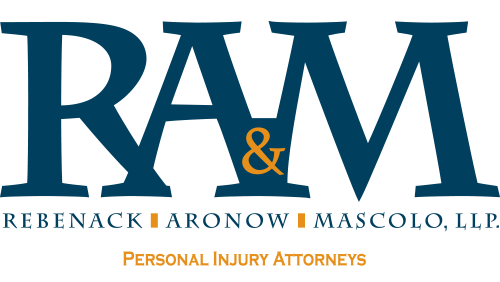Who’s Liable in a New Jersey Commercial Truck Crash?
Most commercial trucks are roughly 20 to 30 times heavier than passenger vehicles. This size difference can lead to some pretty serious and complicated roadway accidents that may involve multiple at-fault parties. Identifying all of the parties that contributed to an accident is important so that victims can recover just compensation to pay for their losses.
Determining Liability in Truck Accidents
Commercial trucking involves a lot of details and working parts. In addition to the driver and the actual parts of the vehicle, there are several other professionals working to ensure safe and profitable transport. Therefore, when a tractor trailer accident occurs, multiple parties may have a connection to the crash. Figuring out who might be legally liable in a truck collision is important because New Jersey allows contributory negligence to be apportioned among the various at-fault parties under NJ Rev. Stat. 2A:15-5.3. Under this law, the jury determines the percentage of fault to assign to every party that contributes to an accident. If a jury assigns a percentage of fault to a party that has not been named as a defendant to a lawsuit, the plaintiff’s damages will be reduced by the portion that was allocated to that person or entity. This makes determining legal liability for truck accidents important. Ultimately, it affects how much money injured victims or the families of people who have been killed will be able to recover.
Because of the importance of identifying all of the potentially liable parties in truck accident cases, experienced truck accident lawyers conduct thorough investigations. These can help them identify all of the parties that should be named as defendants to lawsuits that they file on behalf of their clients. Truck accidents may be caused by multiple parties, including the following:
- The driver of the passenger vehicle
- The driver of the commercial truck
- The trucking carrier that employed the truck driver
- Cargo loaders that load the trucks and secure the loads
- Agencies and entities that maintain the roads
- Manufacturers of defective truck parts
- The company that owns the truck
By identifying the causes of the accident, a truck accident lawyer can make certain that all of the responsible parties are named as defendants to a lawsuit.
When the Passenger Vehicle Driver Is Partially at Fault

In some truck collisions, the driver of a passenger vehicle is partially or completely at fault. If the passenger car driver is completely at fault for the accident, he or she will not be able to recover damages. If the driver of the passenger vehicle is partially at fault, he or she may still be able to recover damages as long as the percentage of fault is not higher than the combined fault of the defendants.
Under NJ Rev. Stat. 2A:15-5.1, plaintiffs in trucking accidents are only able to recover compensation when their percentage of fault is less than 50%. If a driver is assigned a percentage of fault of less than 50% by a jury, his or her damages award will be reduced by this percentage. For example, if a jury awards a driver a gross damages award of $1 million but allocates the driver 20% of the fault, the net verdict amount will be reduced by 20% for an award of $800,000.
When the Truck Driver Is at Fault
Most truck drivers are very safe and skilled at operating big rigs. However, driver error or negligence does happen. Some of the reasons that a truck driver might be at fault for a collision include the following:
- Speeding
- Distracted driving
- Driving while fatigued
- Hours-of-service violations
- Drunk or drugged driving
- Loss of control
When negligence causes a collision with another vehicle, the at-fault driver could be deemed liable for any resulting damages. Furthermore, a negligent driver could face stiff legal penalties.
The Trucking Carrier’s Liability
Trucking carriers that employ the commercial drivers may be vicariously liable for the negligent actions of their drivers under a legal principle called respondeat superior. Since trucking carriers derive financial benefits from their drivers’ work, they also are responsible to pay damages when the drivers negligently cause harm to others during the course and scope of their jobs.
Trucking carriers may also be directly liable for accidents in some situations. An example would be negligently hiring, retaining, or supervising an incompetent truck driver. Trucking carriers that fail to inspect, maintain, and keep their trucks in good condition may also be liable if an accident results because of the lack of repairs or maintenance. For example, if an accident occurs because a truck’s poorly maintained brakes fail, the trucking company may be liable.
Cargo Loaders
Companies that are responsible for loading and securing the cargo onto trucks can be liable for accidents. Some truck accidents happen when the loads suddenly shift or fall because of improper loading procedures. Cargo loaders must inspect the trucks to make certain that they have been properly loaded and secured. If they fail to do so, they may be named as defendants to a lawsuit.
Agencies Responsible for Maintaining and Repairing the Roads
Some accidents are caused by poorly maintained roads. In New Jersey, the New Jersey Department of Transportation is responsible for maintaining and repairing the state highways and interstates. Furthermore, counties and cities are responsible for maintaining and repairing other roads within their jurisdictions. If a road defect has existed for a lengthy period and the agency should have known about it and corrected it, the responsible agency may be liable for a truck accident caused by the road defect. A truck accident attorney could review whether prior reports have been made to the agency about the existence of the defect and other evidence that shows how long the defect existed.
Defective Truck Part Manufacturers
Some commercial truck accidents are caused by defective vehicle parts that fail and cause drivers to lose control. If an attorney determines that a defective truck part contributed to a collision, the manufacturer of the part could be named as a defendant to the lawsuit under a theory of product liability. In some cases, a malfunctioning part could be linked to a class-action lawsuit affecting multiple plaintiffs.
Liability of the Truck’s Owner
Some trucking carriers lease their trucks from third-party companies. The owners of the trucks are required to inspect the trucks and keep them in good repair under federal regulations. When companies fail to complete the required inspections and repairs, they may be considered liable to pay damages if accidents result.
Get Help From the Truck Accident Attorneys at RAM Law
If you have suffered serious injuries or lost a loved one in a truck accident, getting help from an experienced truck accident attorney is important. The professionals at RAM Law have years of experience helping truck accident victims recover damages. Contact our office in New Brunswick by calling (732) 247-3600 or our office in Somerville by calling (908) 448-2560 to schedule a free consultation. You can also reach us via email at contact@ram.law.


